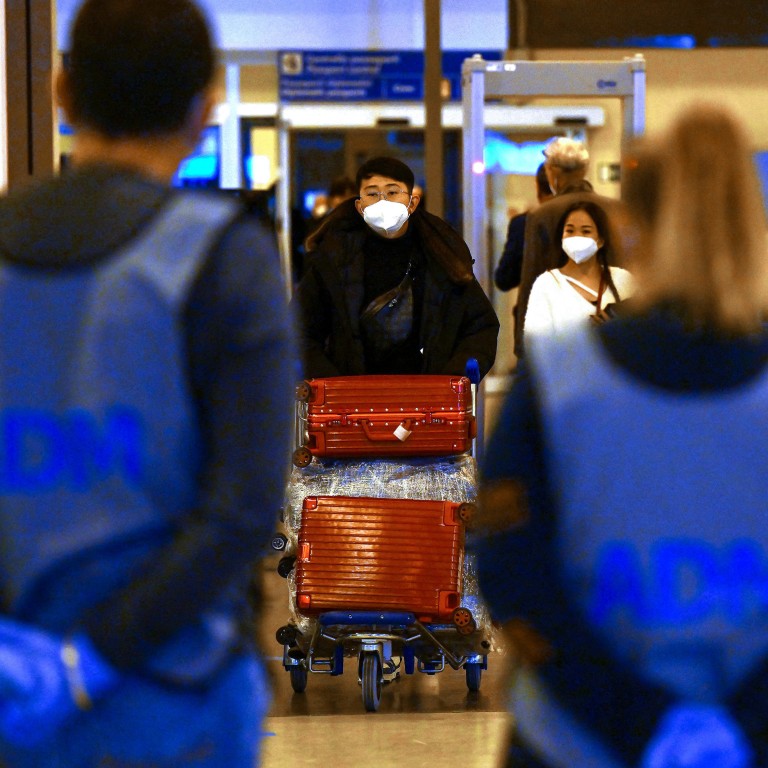
Spain joins Italy in placing new Covid-19 controls on Chinese travellers but other European countries say they have no plans to do so
- South Korea also announced that it will limit flights and suspend applications for tourist visas from China
- Italy’s controls – imposed after half the passengers on two flights tested positive – have been criticised by the EU’s health agency as unjustified
But on Friday the country’s government said that arrivals from China would now have to produce a vaccination record or a negative PCR test result.
“Travellers from China will have to show ‘proof’ that they are negative … or a full vaccination list,” health minister Carolina Darias said.
Italy, which was the first country in Europe to be hit by Covid in 2020, imposed mandatory Covid-19 tests on arrivals from China on Wednesday, after more than half the passengers on two flights from China to Milan were found to be infected.
The country joins other non-European nations such as Japan and the United States in imposing restrictions on Chinese travellers.
China pledges crackdown on disrupters during Covid-19 infection surge
On Thursday, the European Union’s health agency said it considered “screenings and travel measures on travellers from China unjustified” given the EU population’s high immunity to the Omicron variant, which is the dominant strain circulating in China.
France also said it had no plans to impose curbs on Chinese arrivals at the moment.
“From a scientific point of view, there is no reason to bring back controls at the border … but that could change any day,” Brigitte Autran, head of the French health risk assessment committee, told Radio Classique.
The United Kingdom, which so far has not imposed any new measures on Chinese visitors, is also reviewing its policy.
Italian Prime Minister Giorgia Meloni has confirmed the country had not found any new mutations of concern in the virus after screening more than half of the samples from the recent arrivals in Milan.
She earlier urged other countries in the bloc to impose the same restrictions because travellers could enter Italy from other countries, which may undermine the effectiveness of its controls.
On Thursday the head of the World Health Organization Tedros Adhanom Ghebreyesus tweeted that the global health body needs more information to assess the latest surge in infections in China, without directly commenting on the restrictions imposed on travellers from China.
Scale of China’s Covid-19 outbreak will be known, but not yet: NHC
“[Some governments] may be fearful of the scale of infections and deaths that come with China’s opening … but the peak will pass soon and China will be open to the world as well, these countries will have their concerns eased then,” Ding Yifan, an analyst at the Chinese State Council’s Development Research Centre, said.
China announced on Wednesday that Beijing has passed its infection peak. Other major cities and provinces – including Guangzhou, Zhejiang and Shandong – are expected to reach a peak by mid-January before the Lunar New Year.
Additional reporting by Kinling Lo and Vincent Choi

 - Kawala Xie.jpg?itok=NogZcyZ-&v=1661304068)
